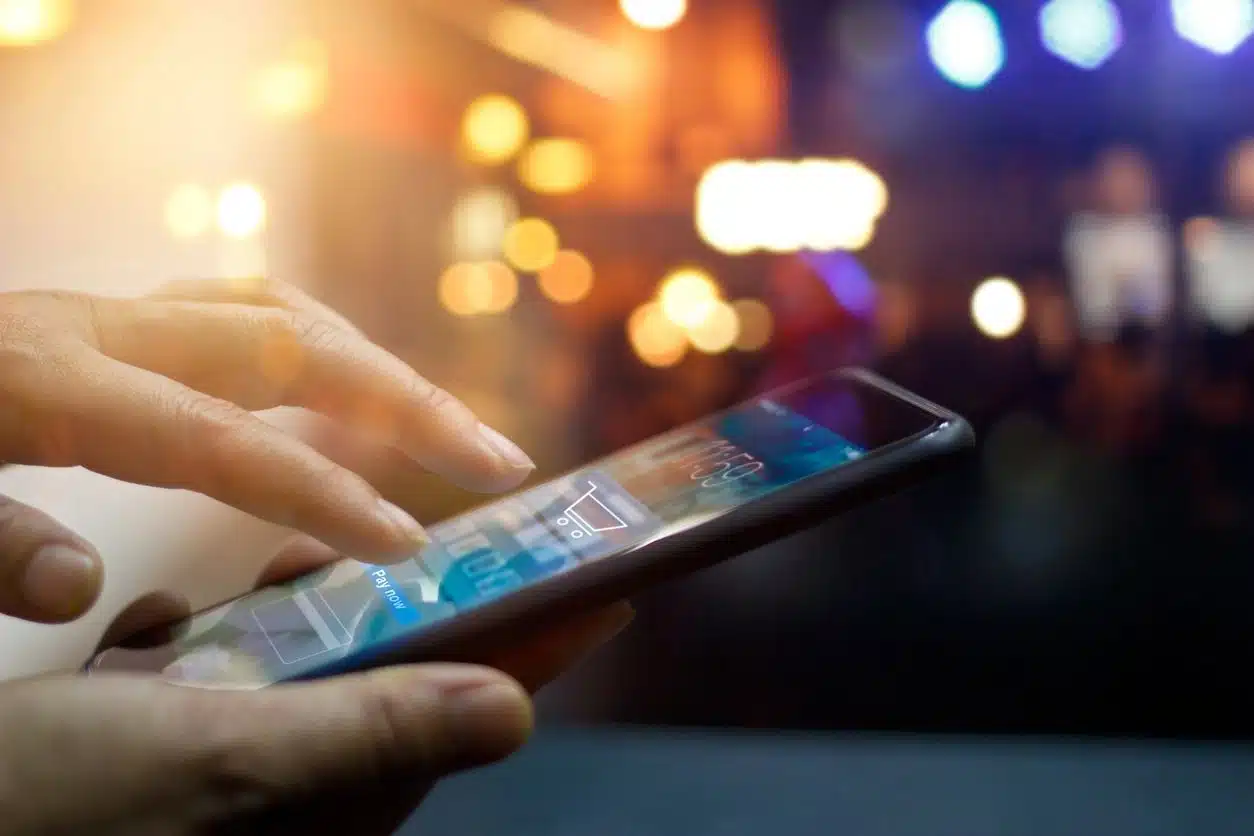The FBI this month warned that foreign hackers can intercept our text messages— including the ones used to send two-factor authentication codes. And in 2023, law enforcement advised against the use of public USB charging stations— like the ones found in airports and malls. (Cyber criminals can use them to install malware on a device and steal its data, including stored passwords. You can protect yourself with a data blocker.) But perhaps the greatest risk comes from the use of public WiFi— and that’s why you need a VPN while traveling.
What is a Virtual Private Network (VPN)?
A virtual private network, or VPN, is software installed on your computer, tablet, or cell phone. It encrypts your internet traffic and routes it through a secure server to prevent hackers from intercepting and reading it. And a VPN also masks your IP address— and therefore your location— for added privacy. You can leave it on for uninterrupted protection, or turn it on and off as needed.
Why You Need a VPN While Traveling
Hackers can easily intercept unencrypted traffic on public WiFi networks in airports, hotels, restaurants, or anywhere else— even if they’re password-protected. And cyber criminals sometimes set up “spoof” networks to resemble trusted, legitimate ones. All so they can steal your sensitive data. Now we know they can intercept traffic on cellular networks, too.
Just think about all the data on your device— stored passwords, credit card info, bank accounts, and other sensitive, personal details. Of course, they can also steal your identity.
Unexpected Perks of Using a VPN While Traveling
Nothing is 100% effective 100% of the time, but VPNs do their job so well that Russia, China, Iran, the UAE and other countries that censor the internet prohibit them. That’s because VPNs mask your IP address. IP addresses are country-specific and identify the point at which a particular device connects to the internet— for example, a home’s or hotel’s internet router. And censors can’t control IP addresses beyond their borders. A VPN conceals your actual location and lets you choose the location of your IP address—including other countries.
Lower Prices on Airfare and Hotels with VPNs
That’s handy even if you aren’t worried about censors. For example, your bank may not allow log-ins from overseas— while traveling, you can simply select a VPN server at home and you’re all set. And Netflix, Hulu, and other providers restrict some content to specific geographical regions— meaning you may not be able to watch your favorite shows on the road unless you set your VPN to an approved location. Also, many airlines and hotels offer different prices to customers in— or outside of— their home countries. A little experimentation with VPN locations could save you a lot of money when booking reservations.
So What’s the Best VPN for Traveling?
I won’t recommend a product I can’t personally vouch for. And I’ve been a happy customer of NordVPN for more than a decade. But don’t take my word for it— most major travel publications, tech writers, and media outlets also name NordVPN among the best in the business.
Why? Because NordVPN uses advanced encryption and— unlike the competition— doesn’t track, collect, or share your private data. It also has more servers throughout the world and offers faster connection speeds— with no throttling— than its competitors. And there are no bandwith limits. With just one account you can connect 10 devices, including a router. Even better, NordVPN works with the most commonly used platforms— Windows, MacOS, Android, iOS, and more. It’s easy to see why NordVPN is my preferred VPN while traveling.
Additional Tools Available with NordVPN
For those who want extra layers of online protection, NordVPN offers additional tools. Customers can choose to supplement their VPN with a password manager, encrypted file storage, malware protection, or a service that erases your digital footprints on the internet.
Try NordVPN with a Risk-Free Trial
Take advantage of the 30-day, money-back guarantee to try NordVPN for yourself. And by clicking on the red “Get VPN” button below, you’ll currently get 76% off the normal price plus 3 free months. That’s $3.39 a month for two years with the present offer. (The link will automatically update to the current discount once the new year special expires.)
You may be tempted to choose a lesser known, free VPN. But experts caution there are several disreputable providers that simply want to collect and sell your data— stick with a well-known, highly rated VPN to protect yourself.
Final Thoughts
In a world where technology constantly exposes us to cyber threats, it’s reassuring to know there are tools we can use to fight back. After more than a decade, NordVPN is still my go-to VPN while traveling. There’s just too much risk without it.
More Safety Tips for Travelers
Be sure to read my article about how to protect yourself from pickpockets. And check out these safety tools for travelers.
Disclosure: This post contains affiliate links. If you use a link to buy something, I may earn a commission at no additional cost to you. As an Amazon associate, I earn from qualified purchases.







